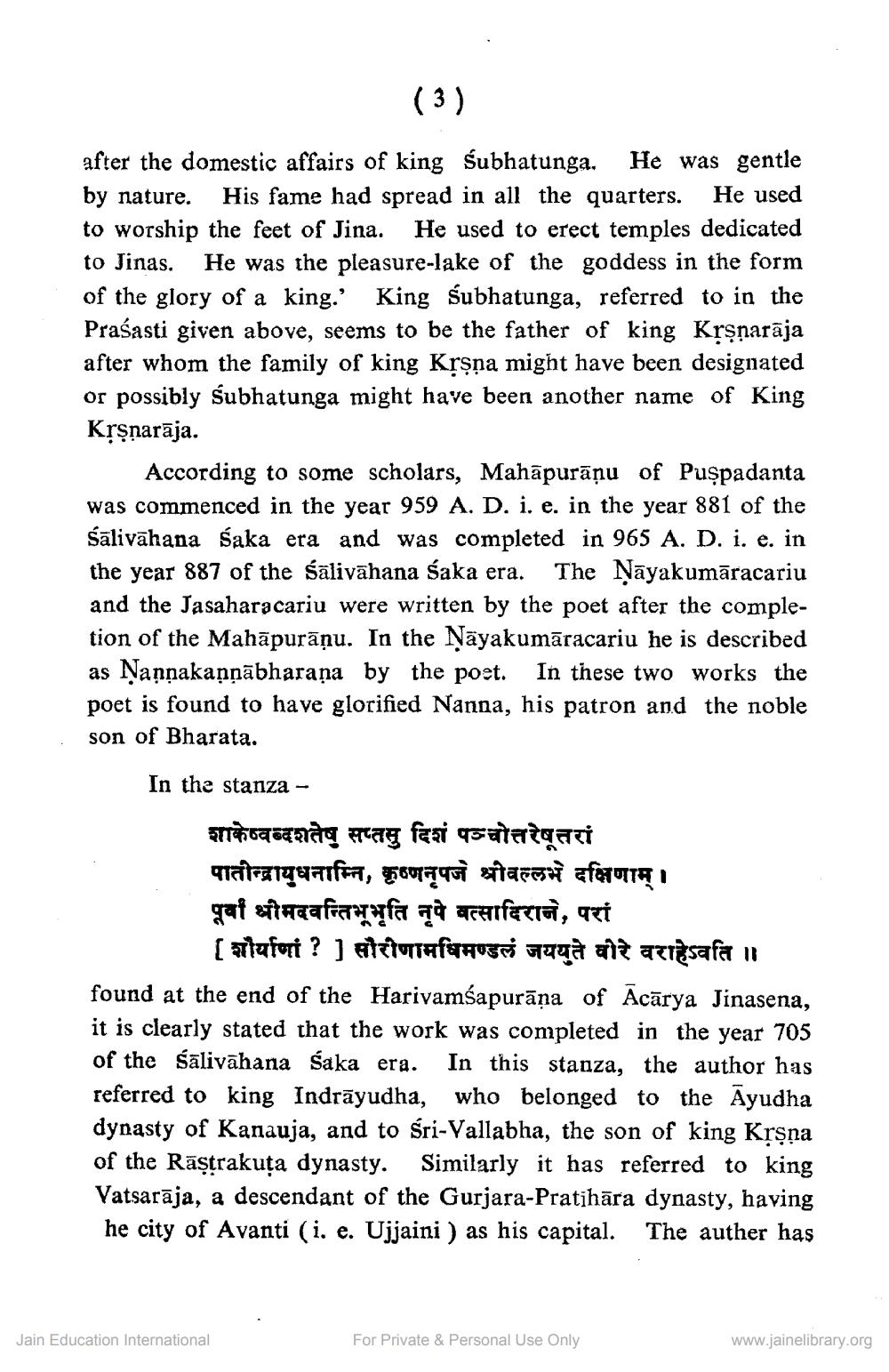Book Title: Parshvabhyuday Author(s): Jinsenacharya, M G Kothari Publisher: Gulabchand Hirachand Doshi View full book textPage 8
________________ (3) after the domestic affairs of king Subhatunga. He was gentle by nature. His fame had spread in all the quarters. He used to worship the feet of Jina. He used to erect temples dedicated to Jinas. He was the pleasure-lake of the goddess in the form of the glory of a king.' King Subhatunga, referred to in the Prasasti given above, seems to be the father of king Kṛṣṇarāja after whom the family of king Kṛṣṇa might have been designated or possibly Subhatunga might have been another name of King Kṛṣṇarāja. According to some scholars, Mahāpurāņu of Puspadanta was commenced in the year 959 A. D. i. e. in the year 881 of the Śālivāhana Śaka era and was completed in 965 A. D. i. e. in the year 887 of the Salivahana Śaka era. The Nayakumaracariu and the Jasahara cariu were written by the poet after the completion of the Mahapurāņu. In the Ṇāyakumāracariu he is described as Nannakanṇābharana by the poet. In these two works the poet is found to have glorified Nanna, his patron and the noble son of Bharata. In the stanza 1 andbasandq arag fex qatatqazi पातीन्द्रायुधनाम्नि कृष्णनृपजे श्रीवल्लभे दक्षिणाम् । gai &fincafawyfa zà acanfees, qei [ alufori ? ] atstunafanosci augà aît azığsafa 11 found at the end of the Harivamśapuraṇa of Acārya Jinasena, it is clearly stated that the work was completed in the year 705 of the Salivahana Saka era. In this stanza, the author has referred to king Indrayudha, who belonged to the Ayudha dynasty of Kanauja, and to Sri-Vallabha, the son of king Kṛṣṇa of the Rastrakuța dynasty. Similarly it has referred to king Vatsarāja, a descendant of the Gurjara-Pratihara dynasty, having he city of Avanti (i. e. Ujjaini) as his capital. The auther has Jain Education International For Private & Personal Use Only www.jainelibrary.orgPage Navigation
1 ... 6 7 8 9 10 11 12 13 14 15 16 17 18 19 20 21 22 23 24 25 26 27 28 29 30 31 32 33 34 35 36 37 38 39 40 41 42 43 44 45 46 47 48 49 50 51 52 53 54 55 56 57 58 59 60 61 62 63 64 65 66 67 68 69 70 71 72 73 74 75 76 77 78 79 80 81 82 ... 844
